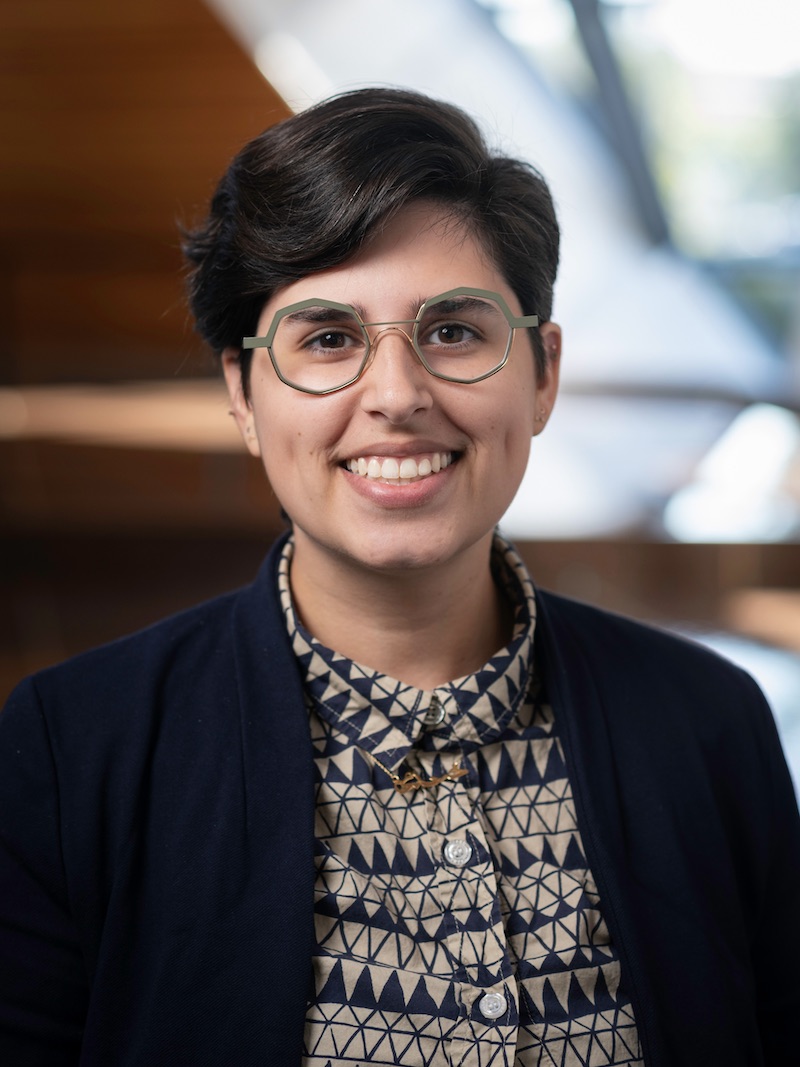Emerging Adulthood SIG Update: Restating The Case for Emerging Adults
Emerging Adulthood SIG Update: Restating The Case for Emerging Adults
By Chelsea K. VanderWoude, PhD (EA SIG Chair)
& Hana-May Eadeh, PhD (EA SIG DIA Member-at-Large)
Arnett (2000) defined emerging adulthood as the period between adolescence and mid to late twenties. This stage of life is characterized by psychological, interpersonal, social, and economic developmental milestones that young people must successfully navigate before reaching adulthood. It is inherently a time of high risk and high reward. Individuals often learn to live independently, pursue an education, trade and/or career, and are responsible for overseeing and managing their own time and money (Arnett, 2007; Arnett et al., 2014). These experiences can be positive due to the newfound autonomy and changes in social context, or, as is the case for many, a series of stressors consisting of a lack of clear guidelines, limited support, and risky decisions with long-term consequences. The results of this timeframe can have a lasting and sometimes detrimental influence on a person’s life. In his initial call to action, Arnett (2000) argued that emerging adulthood warranted clinical and academic attention. This age group should have the opportunity to explore endless possibilities about their identity and future; however, this is heavily influenced by culture and the opportunity to engage with these milestones. Arnett suggested that the focus on emerging adults would become increasingly more important over time with changes in societal and economic norms.
As predicted, there are a plethora of barriers to living independently as a young person today, making the topic of emerging adults more important than ever before. Financial, social, and political stressors that were unheard of prior to the 21st century are now commonplace. While older generations have the opportunity to adjust to changes over time, those entering into adulthood are faced with increasingly complex barriers to many life landmarks before having a chance to adapt. This makes the transition into adulthood inherently more difficult and interferes with developmentally appropriate risk taking.
Young people today must graduate high school and immediately enter into a time defined by tumultuous politics and prolonged uncertainty about the future, while at the same time, taking risks regarding their personal future and trying out different life trajectories. For example, the current cohort of emerging adults were confronted with evolving reproductive and civil rights, mounting pressure for solutions to the climate crisis, limited access to affordable housing (Aurand et al., 2023), increasing rates of substance use (Merikangas & McClair, 2012), the rise and evolution of white nationalism (Reyna, Bellovary, Harris, 2022), and a recent global pandemic. The results of these societal pressures are not completely understood but appear to have detrimental effects on the wellbeing of young people (Cowie & Meyers, 2020; Monaco, 2021).
In order to support both current and future generations of young adults, it is critical that clinicians and researchers focus their attention and research on this population. The emerging adulthood special interest group (EA SIG) was re-initiated this year due to interest from members of the division. The leadership team is sincerely grateful for the opportunity to grow awareness and continue to drive academic and clinical efforts. In the future, we hope to increase our membership, present research, host events through APA and the division, and define best practices for clinicians. Our goal is to do this work while centering the influence of systemic factors on emerging adult well-being and using intersectional perspectives in the service of promoting equity and justice across emerging adulthood research and practice. Anyone interested in joining the SIG can complete the new member interest form on our website. We would love to include you in our mission.
References
Arnett, J. J. (2000). Emerging adulthood: A theory of development from the late teens through the twenties. American Psychologist, 55(5), 469–480. https://doi.org/10.1037/0003-066X.55.5.469
Arnett, J. J. (2007). Emerging adulthood: What is it, and what is it good for? Child Development Perspectives, 1(2), 68–73. https://doi.org/10.1111/j.1750-8606.2007.00016.x
Arnett, J. J., Žukauskienė, R., & Sugimura, K. (2014). The new life stage of emerging adulthood at ages 18-29 years: implications for mental health. The Lancet Psychiatry, 1(7), 569–576. https://doi.org/10.1016/S2215-0366(14)00080-7
Aurand, A., Emmanuel, D., Foley, E., Clarke, M., Rafi, I., & Yentel, D. (2023, March 1). No State Has an Adequate Supply of Affordable Rental Housing for the Lowest Income Renters. The Gap: A Shortage of Affordable Renting Homes. Retrieved August 30, 2023, from https://nlihc.org/gap
Cowie, H, & Myers, C. A. (2020). The impact of the COVID-19 pandemic on the mental health and well-being of children and young people. The International Journal of Children and Society, 35, 62–74. https://doi.org/10.1111/chso.12430
Merikangas, K. R., & McClair, V. L. (2012). Epidemiology of substance use disorders. Human genetics, 131(6), 779–789. https://doi.org/10.1007/s00439-012-1168-0
Monaco, A. P. (2021). An epigenetic, transgenerational model of increased mental health disorders in children, adolescents and young adults. European Journal of Human Genetics, 29, 387–395. https://doi.org/10.1038/s41431-020-00726-4
Reyna, C., Bellovary, A. & Harris, K. (2022). The psychology of white nationalism: Ambivalence towards a changing america. Social Issues and Policy Review, 16, 79-124. https://doi.org/10.1111/sipr.12081

Chelsea K. VanderWoude, PhD
EA SIG Chair

Hana-May Eadeh, PhD
EA SIG DIA Member-at-Large
More From Fall 2023
More From Fall 2023
President’s Message
By Yo Jackson, PhD, ABPP
In Focus: A Selective Mutism Primer
By Rachel Merson, PsyD
2023 Clinical Practice Institute - Register Now!
SCCAP Election Results
2023 Call for Board Nominations
The Coalition for Psychology in Schools and Education: An Interview with Dr. George DuPaul
Evidence Base Update for Disruptive Behavior Problems
Evidence Based Therapies for Keeping Families Together
By Alana L. Riso & Michael A. Southam-Gerow, PhD
APA Convention Recap
By Joy Gabrielli, PhD and Nicole Lorenzo, PhD
2024 Future Directions Forum
To be held July 25-27, 2024
SCCAP Conference Planning Update
2024 SCCAP Award Opportunities
EPCAMH Journal Update
By Mary Fristad, PhD
ABCCAP Update
By Adam B. Lewin, PhD, ABPP
Council of Representatives Report
By Mary Louise Cashel, PhD and Timothy Cavell, PhD
AIRS SIG Update
By Alysha Thompson, PhD
Infant & Early Childhood SIG Update
By Caroline Kerns, PhD & Miller Shivers, PhD
Membership Committee Update
By Chrissy Cammaratta, PhD, ABPP
Science & Practice Committee Update
By Jennifer L. Hughes, PhD, MPH
Fellows Committee Update
By Martha C. Tompson, PhD
Student Development Committee Updates
By Ayotola Onipede & Amanda Bennett
Emerging Adulthood SIG Update: Restating The Case for Emerging Adults
By Chelsea K. VanderWoude, PhD & Hana-May Eadeh, PhD
More From Fall 2023
More From Fall 2023
President’s Message
By Yo Jackson, PhD, ABPP
In Focus: A Selective Mutism Primer
By Rachel Merson, PsyD
2023 Clinical Practice Institute - Register Now!
SCCAP Election Results
2023 Call for Board Nominations
The Coalition for Psychology in Schools and Education: An Interview with Dr. George DuPaul
Evidence Base Update for Disruptive Behavior Problems
Evidence Based Therapies for Keeping Families Together
By Alana L. Riso & Michael A. Southam-Gerow, PhD
APA Convention Recap
By Joy Gabrielli, PhD and Nicole Lorenzo, PhD
2024 Future Directions Forum
To be held July 25-27, 2024
SCCAP Conference Planning Update
2024 SCCAP Award Opportunities
EPCAMH Journal Update
By Mary Fristad, PhD
ABCCAP Update
By Adam B. Lewin, PhD, ABPP
Council of Representatives Report
By Mary Louise Cashel, PhD and Timothy Cavell, PhD
AIRS SIG Update
By Alysha Thompson, PhD
Infant & Early Childhood SIG Update
By Caroline Kerns, PhD & Miller Shivers, PhD
Membership Committee Update
By Chrissy Cammaratta, PhD, ABPP
Science & Practice Committee Update
By Jennifer L. Hughes, PhD, MPH
Fellows Committee Update
By Martha C. Tompson, PhD
Student Development Committee Updates
By Ayotola Onipede & Amanda Bennett
Emerging Adulthood SIG Update: Restating The Case for Emerging Adults
By Chelsea K. VanderWoude, PhD & Hana-May Eadeh, PhD
